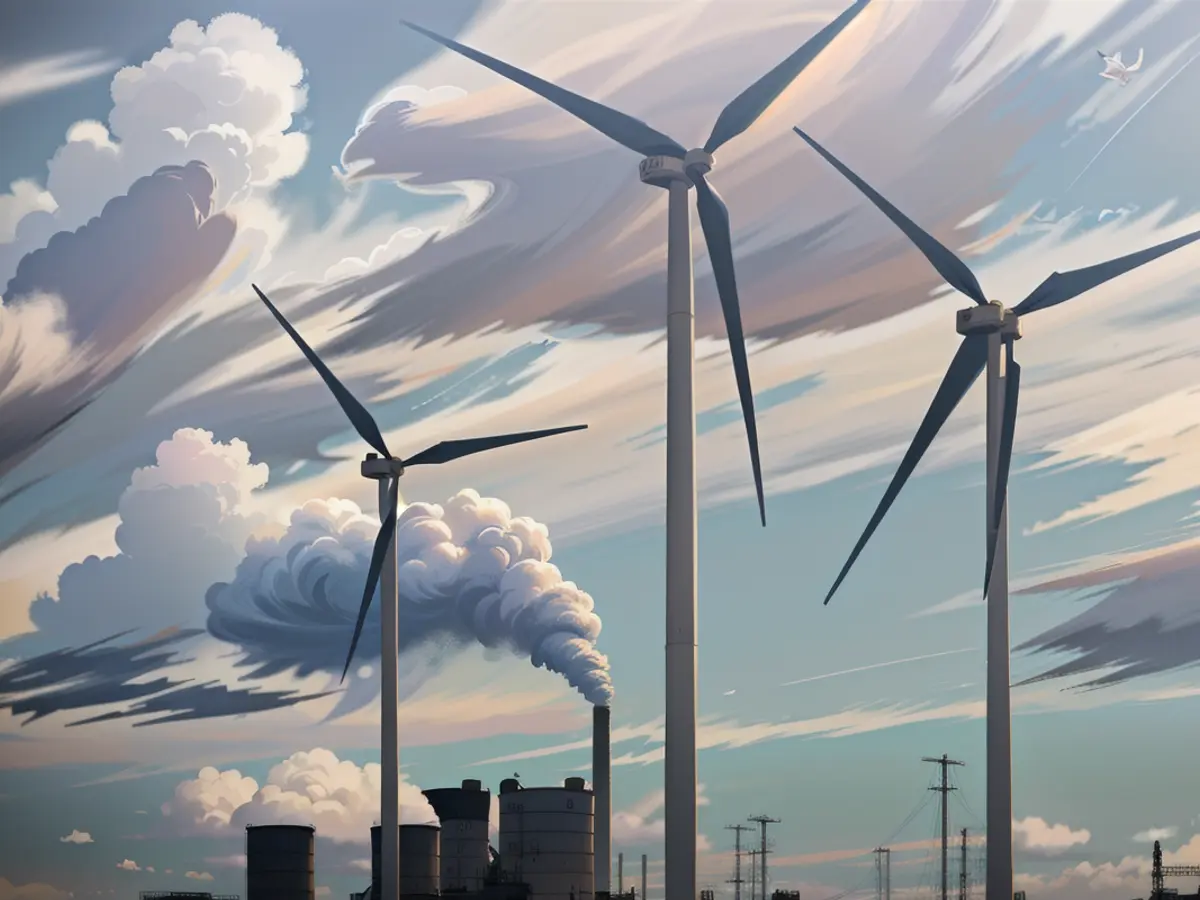The phasing out of coal - The federal government aims to widen the eligibility criteria for financial assistance schemes.
Today, Economic and Climate Protection Minister Robert Habeck (Greens) spoke at the East German Economic Forum in Bad Saarow, expressing his support for an earlier coal exit in the east. In relation to the EU's emissions trading system reform, he stated, "If it is expected that coal-fired power generation will decline considerably before 2038, and the exit occurs earlier in the eastern coal regions, it is crucial to prepare the transition as effectively as possible."
The Ministry of Economic Affairs and Climate Protection has collaborated with the Federal Ministry of Finance to develop a support package for coal regions. As mentioned in the paper, direct investments in company relocations should be made available. There should also be a focus on promoting investments in lignite areas, such as in "green" transformation technologies. The funding periods for financial aid should be made more flexible. These changes would allow unused funds from a project to be utilized up to three years after the end of a funding period.
Additionally, the Federal Program "STARK" is set to be expanded in consultation with the states. Transport infrastructure can be improved in the regions by starting with the planning of already decided rail projects, include the expansion of the Berlin-Görlitz line.
The German government is aiding coal regions in their shift away from climate-damaging coal-fired power generation with billions of euros. In the case of the Rhineland region, the political arena and energy company RWE have agreed to a coal exit eight years earlier, targeting a complete transition by 2030.
Habeck stated in early 2023 that a consensus needs to be reached for an eight-year early coal exit in the east. He added, "This decision won't be determined by one person, but must be accepted as a good plan within a broad alliance."
Read also:
- Minister Robert Habeck emphasized the importance of an early coal exit in the eastern coal regions during his speech at the East German Economic Forum in Bad Saarow, located in Germany.
- In light of the EU's emissions trading system reform, the German Press Agency reported that the Federal Government aims to make changes in the support package for coal regions, which will be handled by the Ministry of Economic Affairs and Climate Protection and the Federal Ministry of Finance.
- The German government's support program, STARK, will be expanded in collaboration with the states to improve transport infrastructure in coal regions, starting with the planning of rail projects such as the Berlin-Görlitz line.
- Robert Habeck emphasized in early 2023 that an eight-year early coal exit in the east would require consensus from various parties and should be seen as a good plan within a broad alliance.
- The German government is providing billions of euros to help coal regions transition away from coal-fired power generation, as demonstrated by the Rheneland region's agreement with the political arena and energy company RWE to exit coal eight years earlier, targeting a complete transition by 2030.
- The changes proposed by the Ministry of Economic Affairs and Climate Protection and the Federal Ministry of Finance include making direct investments in company relocations, promoting investments in 'green' transformation technologies in lignite areas, and making funding periods for financial aid more flexible.
- The support package for coal regions also includes a focus on improving the eligibility criteria for financial assistance schemes, aiming to widen the scope of support for Germany's coal region transition following the coal phase-out of coal-fired power generation.








